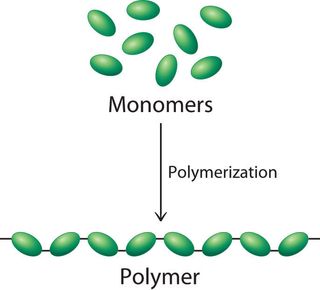Lasting Polymers: Eco-Friendly Solutions for the Future
Lasting Polymers: Eco-Friendly Solutions for the Future
Blog Article
Exploring the Varied Applications and Advantages of Polymers in Different Industries
Polymers, with their diverse series of residential properties and capabilities, have actually ended up being important in various markets, each reaping one-of-a-kind advantages from their application. Polymers. From improving safety and efficiency in the automotive field to changing clinical tools in the medical care industry, polymers play a pivotal function. Their green nature is modifying the landscape of sustainability practices. As we explore the depths of polymers in electronics, we reveal innovative developments, while their architectural integrity transforms the realm of building and construction and infrastructure. The prevalent impact of polymers throughout markets is a testament to their flexibility and versatility, shaping the future of plenty of markets.
Automotive Market Applications
Polymers play a critical duty in enhancing the performance and sturdiness of different elements within the automotive industry. One prominent usage of polymers in the vehicle market is in the production of light-weight elements.

Healthcare Market Advantages
In various healthcare applications, the advantages of making use of polymers are widely recognized for their diverse variety of valuable buildings. Polymers play a critical duty in the medical care sector due to their flexibility, biocompatibility, and cost-effectiveness. Among the key benefits of polymers in health care is their ability to be tailored to specific demands, such as flexibility, sturdiness, and biodegradability, making them perfect for a large range of medical applications.
Polymer-based products are thoroughly utilized in medical devices, such as catheters, implants, prosthetics, and medication delivery systems, as a result of their biocompatibility and capacity to simulate all-natural tissues. These products can minimize the threat of allergies or rejections, enhancing patient safety and security and end results. In addition, polymers are light-weight, making them ideal for wearable clinical devices and ensuring individual convenience.
Moreover, polymers allow the growth of innovative therapy methods, such as hydrogels for cells engineering and nanocomposites for targeted drug delivery. Their ease of processing and sterilization makes them crucial for maintaining high standards of health in health care settings. In general, the varied advantages of polymers add significantly to advancements in clinical innovation and individual treatment.
Environmental Benefits of Polymers

Furthermore, polymers can contribute to energy financial savings due to their light-weight nature. In markets such as transportation, light-weight polymer products can help in reducing fuel usage and greenhouse gas discharges. Additionally, polymers can enable the growth of energy-efficient products such as insulation materials that improve energy conservation in buildings.
Moreover, polymers play a critical duty in lowering water pollution. The use of polymer-based filtering systems can effectively eliminate contaminants and contaminants from wastewater, safeguarding water sources and communities. On the whole, the environmental benefits of polymers make them useful properties in promoting sustainability and green techniques throughout different sectors.
Polymers in Electronic Devices and Innovation
Taking into consideration the enhancing need for ingenious and lasting solutions in modern-day markets, the combination of sophisticated polymer technologies in the realm of electronic devices and modern technology has actually become a pivotal approach for driving performance and efficiency. Polymers have revolutionized the electronic devices industry by enabling the manufacturing of lighter, extra flexible, and durable electronic gadgets. From smartphones to clinical gadgets, polymers play a vital function in improving product design and performance.
One substantial benefit of polymers in electronic devices is their insulating homes, which help safeguard delicate digital components from ecological factors and electric interference. Additionally, polymers are important in the advancement of versatile screens, wearable technology, and printed electronic devices, providing endless possibilities for creating wise and interconnected devices.
In addition, the use of polymers in digital packaging has caused innovations in miniaturization and thermal management, enhancing the general efficiency and integrity of electronic systems. As technology remains to develop, the flexibility and versatility of polymers will undoubtedly drive better innovation in the electronics market, shaping the future of modern important source technology.
Role of Polymers in Building and Infrastructure
Polymers supply various advantages in the construction sector due to their flexibility, sturdiness, and cost-effectiveness. One key duty of polymers in construction is their usage in coverings and sealants, providing defense against ecological factors such as moisture, UV radiation, and corrosion.
Moreover, polymers play a vital role in sustainable building methods by making it possible for the growth of energy-efficient frameworks. Insulating products made from polymers aid manage indoor temperature levels, decreasing the demand for home heating and cooling systems and ultimately lowering power intake. The use of polymer-based compounds in facilities jobs such as bridges and roadways improves their long life and decreases maintenance prices. Overall, the consolidation of polymers in construction and facilities displays their considerable impact on contemporary design methods.
Verdict
Finally, polymers play an important role in various industries such as auto, health care, environmental, electronics, navigate to this website and building and construction. Their flexible buildings make them important in developing ingenious services and products. From enhancing gas efficiency in vehicles to enhancing medical devices, polymers offer countless benefits. Additionally, their effect on decreasing waste and advertising sustainability highlights their value in modern-day applications. The extensive use polymers shows their considerable payment to advancing technology and enhancing high quality of life.
Report this page